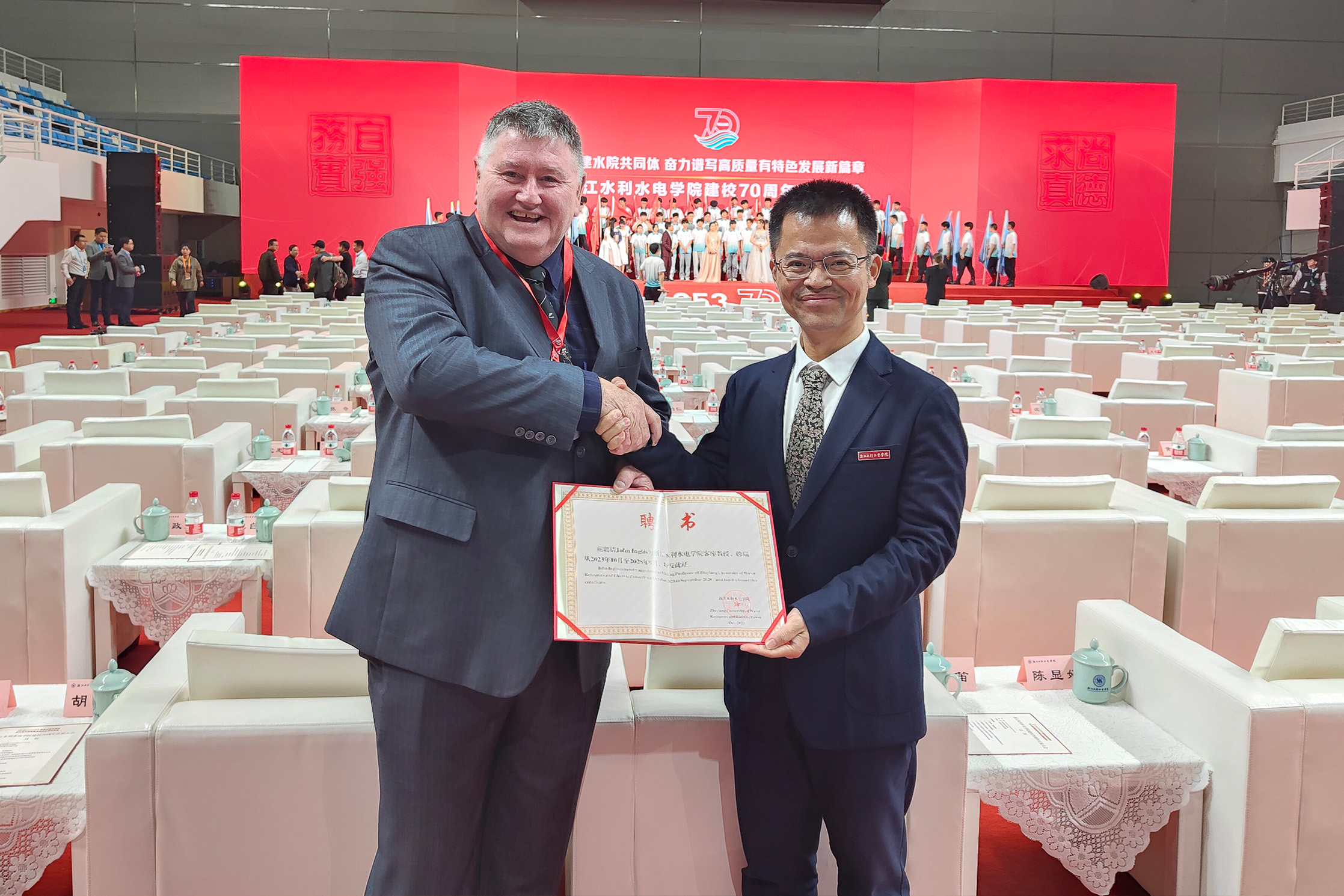NMIT Te Pūkenga kaimahi commended for his work in China

During his two-week visit John travelled nearly 33,000kms and spent over 111 hours in either a plane, train or car.
From large metropolises like Guangzhou in the south to Beijing to the north, and smaller regions like Yinchuan, Zhuzhou, and Huangshi, John shook hands with directors, deans, and presidents whom he has known for many years working in the international team at NMIT.
“The Saturday I arrived I had about 15 minutes to freshen up before heading to the Nanxun campus for a 70th-anniversary event,” John says. “It was really good to see a few familiar faces again.”
At this event, John was granted the title of Visiting Professor and presented with a Professor Certificate by Vice-President Li and Director He, an award which lasts for five years.
During the presentation speech, Vice-President Li mentioned that John was one of their university's first three New Zealand teachers in 2006. He also recognised his efforts to improve teaching and learning standards.
“I am very proud to receive this special consideration,” says John.
John has honed his visits to China, fitting many face-to-face meetings within a short timeframe. This means he often checks emails or writes letters well into the night.
“Travelling for business isn’t glamorous,” says John. “Busy and silly schedules are the norm.”
NMIT has long enjoyed an association with Chinese institutions and continues to honour and strengthen these ties.
Tutors teaching English, engineering, arts and computer-generated imagery (CGI) head to universities across the nation to improve the teaching and learning between China and the West under Te Pūkenga.
During his trip, John visited NMIT teachers and was able to greet an NMIT English teacher, get her settled and go with her to meet the freshman class she would teach for the next several weeks.
For only the second time, John tried Sichuan food, after vowing previously never to touch it again.
“I have never tasted food so hot - I reckon my eyeballs were even sweating.”
Te Pūkenga has recently signed a training agreement with China which will include talent cultivation in professional areas such as early childhood education and healthcare for the elderly. It will also provide more student exchanges and academic visits.
This new agreement aims to increase the emphasis on vocational skills education, raising productivity and meeting the future needs of key industries.
There are also agreements for Chinese learners to study remotely, benefiting from our expertise in subjects such as viticulture and winemaking.
Currently, there are 66 active partnerships with education providers in China throughout Te Pūkenga.

